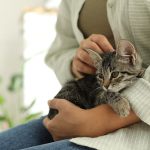1. The Importance of Gut Health in Cats
If you’re a cat parent, you probably know how mysterious our feline friends can be—especially when it comes to their health. One area that’s often overlooked is your cat’s gut health. But did you know that a healthy digestive system is the foundation for your cat’s overall well-being? Let’s break down why gut health matters so much for your kitty.
Why Gut Health Matters
Your cat’s digestive system does more than just process food. It helps absorb nutrients, provides energy, and even supports their immune system. When the gut isn’t working properly, you might notice issues like poor appetite, low energy, or frequent tummy troubles.
The Role of the Digestive System
| Function | How It Helps Your Cat |
|---|---|
| Nutrient Absorption | Allows your cat to get essential vitamins, minerals, and proteins from food. |
| Energy Production | Breaks down food into usable energy so your cat can play and explore. |
| Immune Support | About 70% of a cat’s immune system lives in the gut, helping fight off germs and illness. |
Signs Your Cat’s Gut Health Might Be Off
- Frequent vomiting or diarrhea
- Lethargy or decreased activity
- Poor coat quality or dull fur
- Unexplained weight loss or gain
- Picky eating or loss of appetite
If you notice any of these signs, it could mean your cat’s digestive system needs some attention. Keeping an eye on their gut health is one of the best ways to make sure your furry friend stays happy and healthy every day.
Common Digestive Issues in Cats
Just like people, cats can experience a variety of digestive problems. As a cat owner in the United States, its important to know the common signs and issues so you can help your feline friend feel their best. Let’s look at some of the most typical digestive troubles American cat owners see.
Vomiting
Vomiting is one of the most frequent digestive complaints in cats. Sometimes it’s just a hairball, but it could also be caused by eating too quickly, food allergies, or even underlying health conditions. Occasional vomiting may not be a big deal, but if your cat throws up regularly or seems unwell, it’s time to talk to your vet.
Diarrhea
Loose or watery stool can happen for several reasons—diet changes, stress, infections, or food intolerances are all possible causes. If diarrhea lasts more than a day or two, or if you see blood, dehydration, or lethargy, contact your veterinarian right away.
Constipation
Cats can get constipated just like humans. Signs include straining in the litter box, infrequent stools, or hard, dry poop. Common causes are dehydration, lack of fiber in the diet, obesity, or not getting enough exercise. Chronic constipation can lead to bigger health issues if left untreated.
Hairballs
Hairballs happen when cats groom themselves and swallow loose fur. Most of the time, hair passes through the digestive tract without trouble. But sometimes it forms a clump that gets vomited up—or worse, causes a blockage. Long-haired breeds are especially prone to hairballs.
Quick Reference Table: Common Cat Digestive Problems
| Issue | Possible Causes | What To Watch For |
|---|---|---|
| Vomiting | Eating too fast, hairballs, food allergies, illness | Frequent vomiting, loss of appetite |
| Diarrhea | Diet changes, stress, infections, intolerance | Loose stools, dehydration signs |
| Constipation | Lack of fiber/water, obesity, inactivity | Straining in litter box, hard stools |
| Hairballs | Excess grooming (especially long-haired cats) | Coughing/gagging up fur clumps |
When to Seek Veterinary Help?
If you notice any changes in your cat’s bathroom habits or digestion that last more than a couple of days—or if your cat seems uncomfortable or in pain—it’s always safest to check with your veterinarian. Early attention can prevent small problems from becoming big ones.

3. Signs Your Cat May Have a Digestive Problem
If you’re trying to keep your cat healthy, understanding the signs of digestive problems is key. Cats are masters at hiding discomfort, so it’s important to pay attention to subtle behavioral changes and physical symptoms that might mean something is wrong with their gut.
Common Behavioral Changes
Cats may not always show obvious signs when they’re feeling unwell. Here are some behavioral clues that could suggest your cat is experiencing GI distress:
| Behavioral Change | What It Might Mean |
|---|---|
| Avoiding the litter box | Pain or discomfort while pooping/peeing |
| Hiding more than usual | General discomfort or pain |
| Lack of interest in food or water | Nausea or stomach upset |
| Excessive grooming, especially around belly | Trying to soothe tummy pain |
| Lethargy or low energy | Feeling unwell overall |
| Sudden aggression or irritability | Pain or feeling vulnerable |
Physical Symptoms to Watch For
Besides changes in behavior, there are physical signs that can indicate digestive issues:
- Vomiting: Occasional hairballs are normal, but frequent vomiting is not.
- Diarrhea: Loose, watery stools lasting more than a day should be checked by a vet.
- Constipation: Straining in the litter box or hard, dry stools can point to GI trouble.
- Bloating or swollen belly: Noticeable swelling can be a sign of a serious issue.
- Weight loss: Unexplained weight loss may mean your cat isn’t absorbing nutrients properly.
- Poor coat condition: Dull fur and excessive shedding can result from nutrient absorption problems.
- Bad breath (halitosis): Persistent bad breath can sometimes relate to gut health issues.
- Mucus or blood in stool: Always cause for concern—call your vet if you notice this.
Quick Reference Table: Behavioral vs. Physical Signs of Digestive Problems in Cats
| Behavioral Signs | Physical Signs |
|---|---|
| Avoiding litter box Hiding Loss of appetite Lethargy Excessive grooming Irritability/Aggression |
Vomiting Diarrhea Constipation Bloating Weight loss Poor coat Bad breath Mucus/blood in stool |
When to Call the Vet?
If you notice any combination of these symptoms, especially if they last more than 24 hours, reach out to your veterinarian. Early intervention can make a big difference in helping your cat feel better and avoid more serious health problems down the line.
4. Causes of Digestive Upset
Digestive problems in cats can be stressful for both pets and their owners. Understanding what causes these issues is important for keeping your cat healthy and comfortable. Here are some common reasons why cats in the U.S. might experience tummy troubles.
Dietary Issues
What your cat eats plays a huge role in their gut health. In the U.S., there’s a wide variety of commercial cat foods, treats, and even “people food” that curious cats might get into. Sometimes, the ingredients or the quality of food can upset your cat’s stomach.
| Common Dietary Causes | Description |
|---|---|
| Low-quality food | Cats eating cheap or poor-quality food may have trouble digesting certain fillers or by-products. |
| Human food snacks | Many human foods are too rich or toxic for cats, like dairy or onions. |
| Treat overload | Too many treats can cause digestive upset due to extra fats and additives. |
Stress and Anxiety
Cats are sensitive creatures, and changes in their environment can lead to stress-related digestive issues. Moving to a new home, a change in routine, or even loud noises (like Fourth of July fireworks) can upset your cat’s stomach.
Sudden Food Changes
If you switch your cat’s food all at once instead of slowly mixing the new with the old over several days, your cat may experience vomiting or diarrhea. Gradual transitions help prevent this kind of digestive upset.
Food Intolerances and Allergies
Some cats develop sensitivities to certain ingredients like chicken, beef, fish, grains, or dairy. Food intolerances can cause symptoms such as loose stools, gas, or vomiting. If you notice these signs after feeding a particular food, your cat may need a special diet.
| Signs of Food Intolerance | Possible Ingredients to Avoid |
|---|---|
| Chronic soft stools Frequent vomiting Itchy skin |
Dairy Gluten Chicken Beef Fish |
Underlying Medical Conditions
Sometimes, digestive problems are a sign of something more serious like inflammatory bowel disease (IBD), pancreatitis, parasites, or infections common among American household cats. If digestive issues last more than a couple of days, it’s important to consult your veterinarian.
Understanding these causes can help you make better choices for your cat’s health and spot potential problems early.
5. Supporting and Maintaining Your Cat’s Gut Health
Practical Preventative Measures
Keeping your cat’s digestive system healthy starts with a few simple everyday steps:
- Regular Vet Visits: Schedule yearly checkups so your vet can catch any gut health problems early.
- Hygiene: Clean food bowls, water dishes, and litter boxes regularly to prevent the spread of bacteria and parasites.
- Monitor Behavior: Watch for changes in appetite, weight, or stool consistency, which might signal digestive issues.
Dietary Recommendations for Gut Health
Your cat’s diet plays a huge role in keeping their digestive tract running smoothly. Here’s a quick guide:
| Type of Food | Benefits | Tips |
|---|---|---|
| High-Quality Protein | Supports muscle and organ health | Look for real meat as the first ingredient |
| Easily Digestible Ingredients | Gentle on sensitive stomachs | Avoid fillers like corn, soy, and by-products |
| Fiber (like pumpkin) | Aids regular bowel movements | Add small amounts to food if recommended by your vet |
| Canned/Wet Food | Keeps cats hydrated and supports digestion | Great choice for cats who don’t drink much water |
The Role of Probiotics in Feline Gut Health
Probiotics are beneficial bacteria that help balance your cat’s gut flora. They can:
- Improve digestion and nutrient absorption
- Reduce occasional diarrhea or constipation
- Support the immune system
You can find probiotics specifically formulated for cats at pet stores or through your veterinarian. Always follow dosing instructions and consult your vet before starting any new supplement.
When to Seek Veterinary Care
If you notice these symptoms in your cat, it’s time to call the vet:
- Persistent vomiting or diarrhea lasting more than 24 hours
- Lethargy or sudden changes in behavior
- Bloody stool or severe abdominal pain (crying out when touched)
- Lack of appetite for more than a day or two
- Dramatic weight loss without explanation
Your veterinarian will help determine if there is an underlying health issue and recommend a treatment plan tailored to your cat’s needs.

